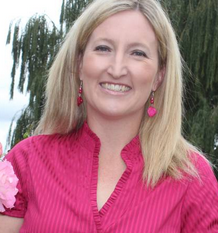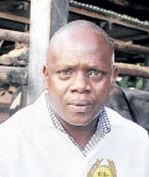14 farmers from all corners of the world gathered at a roundtable discussion today at the Iowa Hunger Summit, part of the week-long programme of the Borlaug Dialogue in Des Moines. An overarching topic throughout the discussion was the waning interest from young people around the world to get involved in agriculture.

Lydia Sasu
For Lydia Sasu of Ghana, women and young people are at the heart of agricultural production, but they are not earning the profits that they should be. “In Ghana, women like me cultivate most of our country’s vegetables, cereals, and other food crops. Even with cash crops such as cocoa, which are mostly owned by men, we weed, harvest, and transport the final product to marketplaces. More than 20 percent of our works is unpaid,” she commented.
She asserted that the declining interest of young people being involved in agriculture is down to the tools that Ghanaian farmers are still using – not many are able to afford mechanised machinery.

Sarah Sammon
But for Mesut Cetin of Turkey, the issue lies in young people not wanting to remain in rural areas once they have gained the skills needed to work farm machinery. This point was backed up by Sarah Sammon in Australia, who also commented that young people do not see a future in short-term seasonal work, and prefer to migrate to the city. Ms. Sammon also cited inability to access finance as a major stumbling block to young people. “I had to write a 65 page business plan and present it to a rural bank that actually understood agriculture,” she commented, and emphased that is it much more viable for big companies to get started in agricultural endeavours in Australia, rather than young entrepreneurs.

Willy Kirwa
One farmer who had an innovative solution to find a young workforce willing to work on his farm, was Willy Kirwa of Kenya. He has set up his own training centre, that invites neighbouring families around his farm to come and learn how to plant, how to breed animals and how to milk cows using machinery. “Training makes us succeed as farmers”, he commented.
The roundtable session was followed by the 2015 Kleckner Trade & Technology Award ceremony, at which Lydia Sasu, a family farmer and Executive Director of the Development Action Association (DAA) in Ghana, was recognised for her outstanding work improving the lives of rural women.
“It is good to know that my activism for rural women and farmers in Ghana has captured the attention of important people—and that maybe this award, in some small way, will advance the cause of global food security,” she commented.
Follow all the latest events and conversations taking place at the Borlaug Dialogue this week by following #FoodPrize15 on Twitter.



